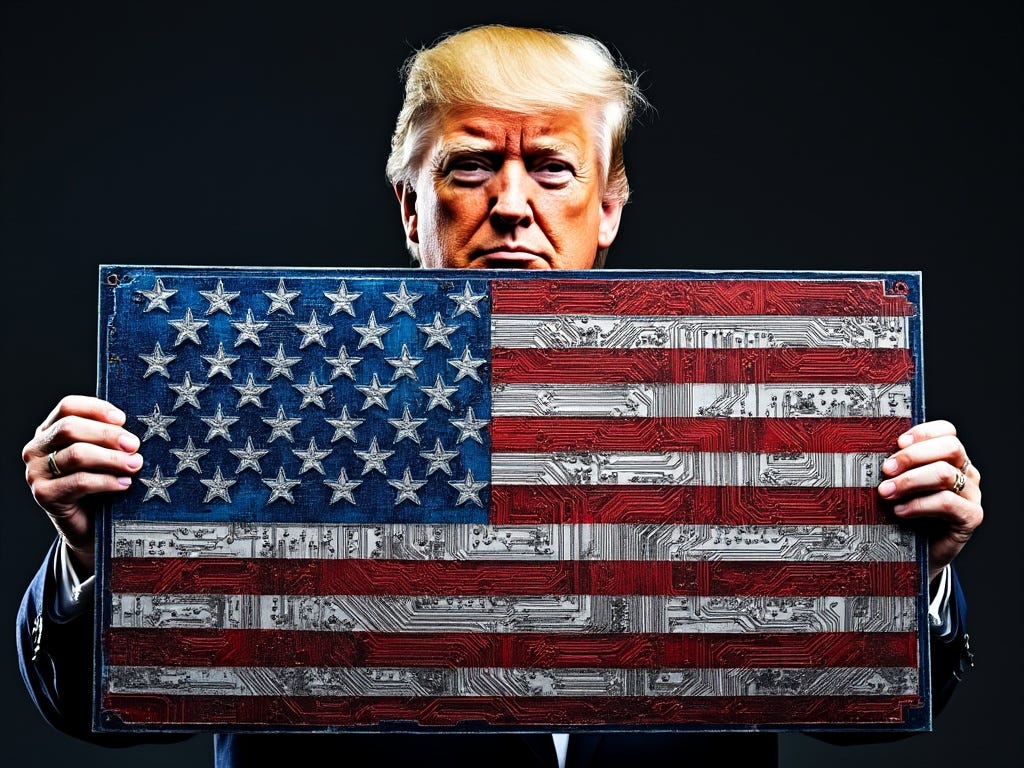Some quick hot takes / predictions on the impact of last night’s election on AI Policy, plus a bonus FCC take.
The Biden Executive Order on AI gets repealed and replaced. In the near term that means all the make-work requirements get demoted in priority within the agencies. Some of those pending reports will never see the light of day. On the other hand some of the substantive efforts (such as AISI guidance and the commercial surveillance rule making at the FTC) will probably get accelerated to be released before January 20. Trump’s team will put out their own EO with an optimistic vision for the future of AI in the US, one that emphasizes the race with China.
More difficult for Congress to ram through AI bills during lame duck. Some are calling for House Republicans to push legislation cementing parts of the Biden EO through attached to NDAA or other must-pass legislation. For co-sponsoring Republicans this made more sense if they were going to lose the House. If they keep it (unclear, although prediction markets favor this result), members may feel less need to rush something through - and they may face more opposition from other Republicans who don’t want to tie Trump’s hands.
Rollback of anti-bias approach to AI: The administration will deprioritize fairness, accountability, and transparency (FAT) principles in AI, particularly around anti-bias initiatives, opting for a stance that emphasizes speed, productivity, and economic outcomes over inclusivity. AI policy at the federal level will de-priorize strict anti-discrimination guidelines, allowing companies more latitude in their algorithmic practices.
State regulation avalanche will continue, maybe grow? The onslaught of 700+ AI bills at the state level won’t abate. The interest groups driving AI legislation in the states now have the extra argument (h/t Adam Thierer) that the Biden EO is gone so the states need to do more. (Of course, the Biden EO wasn’t much of a regulatory effort in the first place, but nevermind.) This argument will add a little oomph in blue states but probably not in red states, where the counter will be “Let’s wait to see what the Trump administration thinks.”
A path toward energy abundance. The stars are aligning on a solid bipartisan push toward easing the morass of regulations that keeps the U.S. from producing more energy. The Trump admin seems unlike to, for example, let a rare bee stand in the way of building more power plants. This is good news for the energy-hungry AI tech.
Some Doomers team up with Ethics. The copious AI Safety money will start flowing into the AI Ethics regulatory efforts, even though these two movements hate each other. The Safety / Doomers are methodologically flexible; they are already beginning to think that the best way to slow down AI isn’t to scare voters but to bury companies in red tape. Losing their footing in the Biden admin will speed up this strategy change. (I’m over simplifying a bit; I think there is a wing of AI Safety that desires speedy but safe development that won’t support a red tape strategy. I’m also not quite sure how Elon Musk will play into all of this.)
Strategic alignment of AI with national defense. Given Trump’s emphasis on national security, AI policy could prioritize defense-related initiatives, with a push for AI-driven advancements in cyber defense, autonomous military systems, and intelligence. This would likely include significant federal funding for AI R&D in defense, alongside an emphasis on securing AI talent and intellectual property from foreign influence. These efforts will sell best to the Trump admin if they can make a convincing case that they will save money.
Increased executive branch role in AI policy. A Trump admin is, on all policy matters, instinctually inclined to maximize the Federal executive’s role. This means emphasizing AI as a national priority. Likely implies strong support for federal preemption, little or no interest in negotiating international agreements that would primarily hamper U.S. companies, and active deployment of federal tools such as tariffs to hinder China. Keegan McBride makes a similar point here.
Increased emphasis on AI in border and immigration technology. Someone is going to sell Trump on using AI in immigration enforcement, for monitoring, surveillance, and predictive analytics at the border. This could mean substantial investments in computer vision, facial recognition, and autonomous monitoring tech to bolster homeland security initiatives and reinforce border control efforts. And it could raise significant Fourth Amendment concerns.
Focus on AI talent and immigration controls. The Trump admin will need to harmonize its anti-immigration stance with the looming AI talent gap. Tight immigration controls will exacerbate that problem. I expect initiatives for training domestic AI talent as a way to mitigate — although I am skeptical of their success. There will be a vocal coalition for high skilled immigration reform that might have some success.
A bonus take, not really AI related: The election results means Net Neutrality Dies Faster. A Carr FCC could put the final bullet in the head of that shambling policy zombie. Starlink is going to have a great four years. Given all that, it’s hard to imagine that net neutrality has any relevance in 2028, and broadband deployment overall may simply be a non-issue by then.




